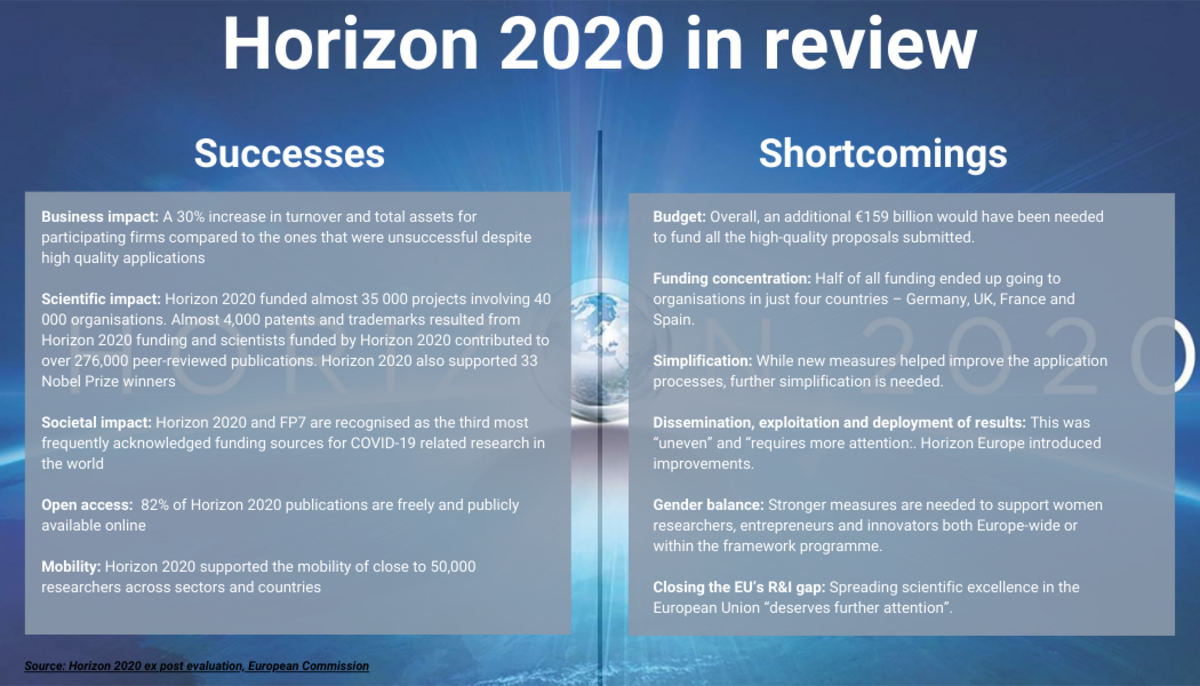
The €75.6 billion Horizon 2020 framework research programme that ran from 2014 - 2020 had a huge impact on the European economy, its scientific output, and on society, but was short on budget, needed simplification and should have included better support for women researchers and entrepreneurs, a review shows.
The Horizon 2020 evaluation, carried out by the European Commission, is one of the first major documents that will inform the scope and aims of the next research programme, Framework Programme 10 (FP10), which will start in 2028.
Horizon 2020 helped fund over 35,000 projects around the world, but was €159 billion short of being able to fund all proposals judged to be “above the quality threshold” in each call. In addition, it lacked the support needed to make the most of the quality research it funded, and despite seeing the introduction of Widening measures, failed to close the research and innovation gap between Europe's top and bottom performers.
The €159 billion underfunding meant 74% of all high quality proposals, around 100,000, were not backed by Horizon 2020.
While the programme attracted around one million applications from 177 countries, around half of all funding went to organisations in just four countries – Germany, UK, France and Spain.
However, smaller countries such as Estonia, Greece, Cyprus and Latvia performed well when comparing how much funding they won against their gross domestic expenditure on R&D.
Every euro invested in the programme will bring around €5 in benefits to EU citizens by 2040 and add an average €15.9 billion to EU GDP annually, reaching around €429 billion from 2014 - 2040.